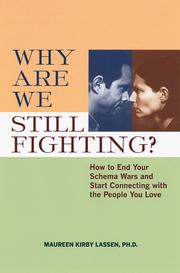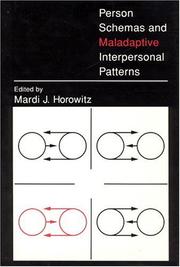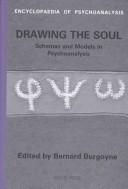| Listing 1 - 10 of 220 | << page >> |
Sort by
|
Book
ISBN: 9004455833 Year: 1998 Publisher: Amsterdam : BRILL,
Abstract | Keywords | Export | Availability | Bookmark
 Loading...
Loading...Choose an application
- Reference Manager
- EndNote
- RefWorks (Direct export to RefWorks)
Als letzter Assistent von Max Scheler hat Paul Ludwig Landsberg (*1901 in Bonn; † 1944 im KZ Oranienburg-Sachsenhausen) dessen Ansätze zu einer Philosophischen Anthropologie in einer durchaus eigenständigen Weise fortgeführt. Insbesondere hat er dabei den Versuch unternommen, eine Grundlegung der Anthropologie durch die Explikation menschlicher Selbstauffassungsgehalte zu leisten: Das Problem menschlicher »Bildung« ist ihm daher nicht einfachhin ein abgeleitetes Anwendungsgebiet der Philosophischen Anthropologie, aus welcher gleichsam nachträglich eine Bildungstheorie deduziert würde, sondern der phänomenologisch zu betrachtende Ausgangspunkt, von welchem her allererst auf die Probleme der Anthropologie hin gedacht werden kann. Die vorliegende Studie nun beginnt mit einer Skizzierung des existentiellen Hintergrundes der Philosophischen Anthropologie (1. Kapitel) und ihrer vorläufigen Begriffs- und Aufgabenbestimmung (2. Kapitel). In der Hauptsache jedoch ist sie darum bemüht, die phänomenologisch erhellte Erfahrungs-Struktur menschlicher Bildung (3. Kapitel) für eine kategoriale Bestimmung anthropologischer und pädagogischer Fragestellungen (4. Kapitel) fruchtbar zu machen. Abschließend werden Grundzüge einer Metaphysik skizziert, die - im Anschluß an die Einsichten Landsbergs, zugleich aber auch in abwägender Auseinandersetzung mit modern-postmoderner Metaphysik-Kritik - die Bildung der Person im Welthorizont zu denken versucht (5. Kapitel).
Book
Year: 1925 Publisher: New York : Longmans, Green and Company,
Abstract | Keywords | Export | Availability | Bookmark
 Loading...
Loading...Choose an application
- Reference Manager
- EndNote
- RefWorks (Direct export to RefWorks)
This text has been written rather compactly. It aims to present a clear, matter-of-fact and concise statement of general principles of psychology (as a study of mental activities) with just enough illustrative material to enable the student to comprehend those principles. This mode of presentation presumes that the text will be used as a basis for class discussion, and that it will need to be supplemented with a considerable amount of exposition and illustration by the instructor. In other words, the use of the text presupposes a teacher rather than a mere quizmaster.

ISBN: 1572241861 Year: 2000 Publisher: Oakland New Harbinger
Abstract | Keywords | Export | Availability | Bookmark
 Loading...
Loading...Choose an application
- Reference Manager
- EndNote
- RefWorks (Direct export to RefWorks)
With half of all marriages in the U.S. still ending in divorce, it's clear that an enormous number of couples need help with conflict skills. The theory of schemas is a fresh new approach to interpersonal relationships with a powerful otential for producing lasting change. Why are satisfying relationships so elusive? And why do so many couples fall into patterns of repetitive conflict? In this book, psychologist Maureen Kirby Lassen explains how our mental models about the world can short-circuit our relationships. The schemas she describes function like personal theories of reality that influence the ways we interact with others and respond in different situations. Readers learn how to become their own relationship experts. (New Harbinger)
Interpersonal relations --- Person schemas --- Schemas (Psychology)
Book
ISBN: 2206001128 9782206001128 Year: 1988 Publisher: Paris: Delagrave,
Abstract | Keywords | Export | Availability | Bookmark
 Loading...
Loading...Choose an application
- Reference Manager
- EndNote
- RefWorks (Direct export to RefWorks)

ISBN: 0226353753 Year: 1991 Publisher: Chicago (Ill.) : University of Chicago press,
Abstract | Keywords | Export | Availability | Bookmark
 Loading...
Loading...Choose an application
- Reference Manager
- EndNote
- RefWorks (Direct export to RefWorks)

ISBN: 0429912951 042989872X 0429473958 1283125455 9786613125453 1849402825 9781849402828 9781900877251 1900877252 1855759039 9781855759039 Year: 2003 Publisher: London ; New York : Karnac Books,
Abstract | Keywords | Export | Availability | Bookmark
 Loading...
Loading...Choose an application
- Reference Manager
- EndNote
- RefWorks (Direct export to RefWorks)
At the beginning of each chapter in this collection is a reproduction of a classic psychoanalytic schema or model, ranging from Freud's first and second topographies, to Lacan's Schema ""L"". Each contributor uses the diagram as a means of elucidating the theory and practice of the respective schools of psychoanalysis.
Book
ISBN: 1784504505 9781784504502 9781785921797 1785921797 Year: 2017 Publisher: London Philadelphia
Abstract | Keywords | Export | Availability | Bookmark
 Loading...
Loading...Choose an application
- Reference Manager
- EndNote
- RefWorks (Direct export to RefWorks)
Observing and understanding schematic behaviour confidently is vital for anyone working with or looking after young children. This guide explains what schemas are, stripping back the technical language often used to describe them, and how to interpret and extend schematic behaviour to benefit the child. It looks specifically at 12 different schemas, such as connection, rotation and transportation, and includes case studies, interpretation of the observations and practical ideas for how to use this information to aid children's learning, development and play. Making schemas and schematic behaviour more understandable, this book will give early years practitioners and parents the confidence to identify schemas and plan future learning opportunities to support children based on this knowledge.
Book
ISBN: 3631340362 Year: 1998 Publisher: Frankfurt am Main : Lang,
Abstract | Keywords | Export | Availability | Bookmark
 Loading...
Loading...Choose an application
- Reference Manager
- EndNote
- RefWorks (Direct export to RefWorks)
Cognition. --- Musical perception. --- Schemas (Psychology).
Book
ISBN: 110891814X 110893451X 1108935273 1108927475 Year: 2023 Publisher: Cambridge, United Kingdom ; New York, NY : Cambridge University Press,
Abstract | Keywords | Export | Availability | Bookmark
 Loading...
Loading...Choose an application
- Reference Manager
- EndNote
- RefWorks (Direct export to RefWorks)
The book provides the reader with a thorough understanding of the model of Schema Therapy, methods and techniques used throughout the process of Schema Therapy treatment. Experienced trainers in Schema Therapy, the authors provide a unique understanding of the questions, challenges, and points of issue experienced by practitioners learning the model. Designed for the practitioner with a specific focus on the theory and practice of modern schema therapy, the book discusses the powerful techniques and cutting-edge developments of the Schema Therapy model, with step-by-step guidance and clinical examples. A comprehensive resource for both students and experienced practitioners providing valuable examples of the model in clinical practice and solutions to the challenges and questions practitioners face in applying the model. Part of the Cambridge Guides to the Psychological Therapies series, offering all the latest scientifically rigorous, and practical information on a range of key, evidence-based psychological interventions for clinicians.
Book
ISBN: 9781433836022 1433836025 Year: 2023 Publisher: Washington, DC: American Psychological Association,
Abstract | Keywords | Export | Availability | Bookmark
 Loading...
Loading...Choose an application
- Reference Manager
- EndNote
- RefWorks (Direct export to RefWorks)
"Deliberate practice exercises allow students and trainees to rehearse foundational schema therapy skills so that they can build competence and hone their own personal therapeutic styles. Each book in the Essentials of Deliberate Practice series contains customized role-playing exercises in which two trainees act as a client and a therapist, switching back and forth under a supervisor's guidance. The trainee playing the therapist improvises appropriate and authentic responses to client statements organized into three difficulty levels-beginner, intermediate, and advanced-reflecting common issues encountered by schema therapists. The first 12 exercises focus on skills derived from schema therapy's three stages-bonding and emotional regulation, mode change, and autonomy-and include limited reparenting, psychoeducation about schema modes, and empathic confrontation. Following these are two comprehensive exercises-an annotated transcript and free-form mock therapy sessions-in which trainees integrate essential skills into a single session. Step-by-step instructions guide participants through the exercises, identify criteria for mastering each skill, and explain how to monitor and adjust difficulty. Guidelines to help trainers and trainees get the most out of training are also provided. "-- "Deliberate practice exercises allow students and trainees to rehearse foundational schema therapy skills so that they can build competence and hone their own personal therapeutic styles"--
| Listing 1 - 10 of 220 | << page >> |
Sort by
|

 Search
Search Feedback
Feedback About UniCat
About UniCat  Help
Help News
News